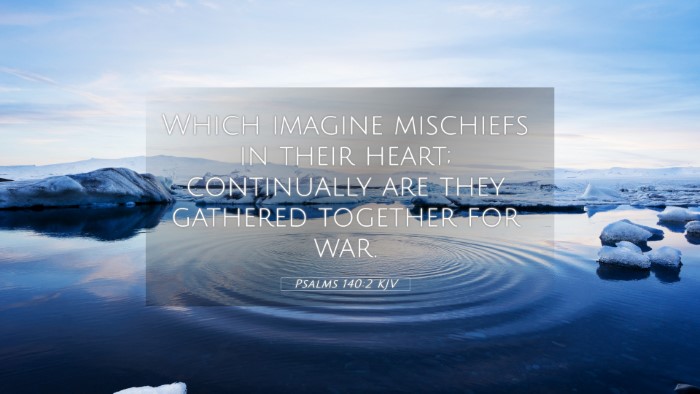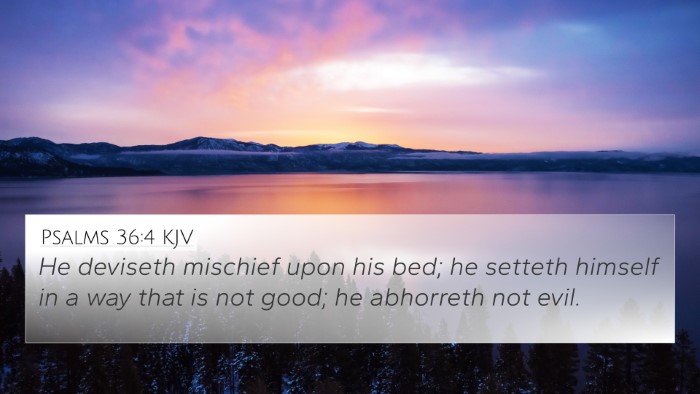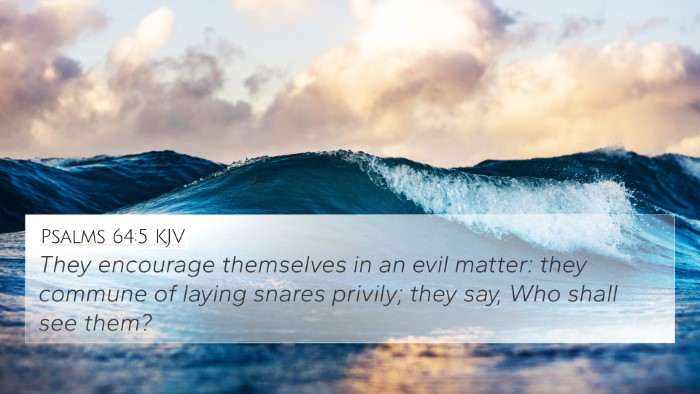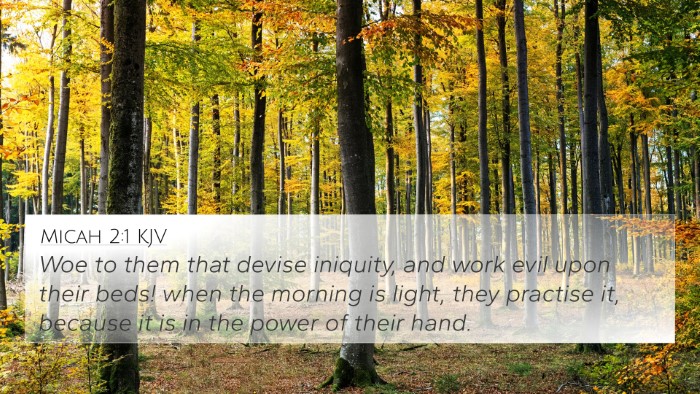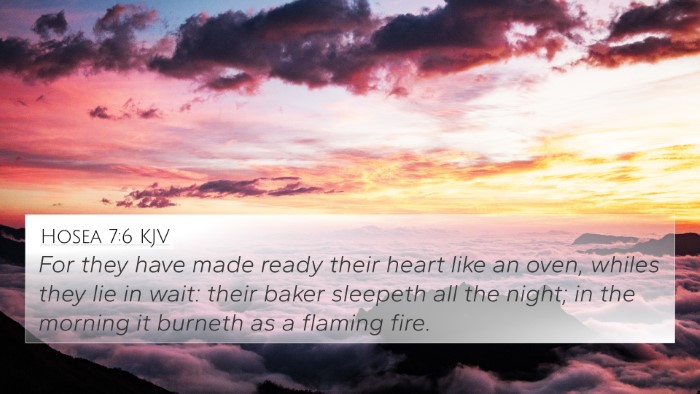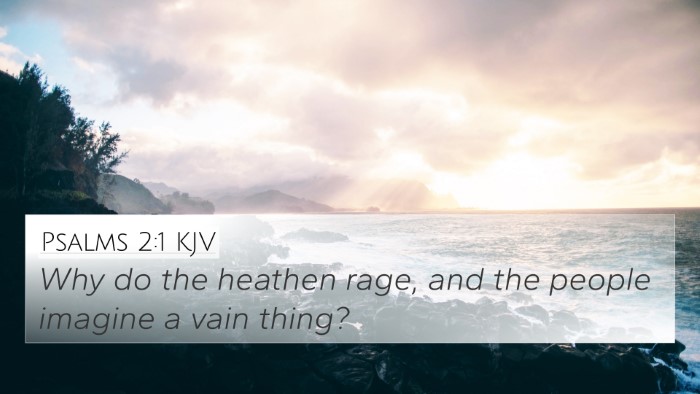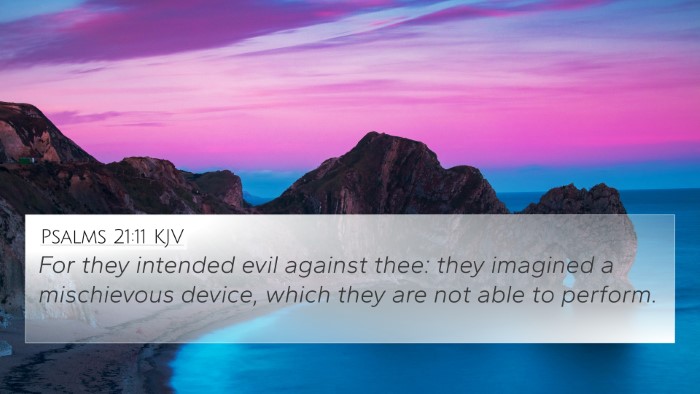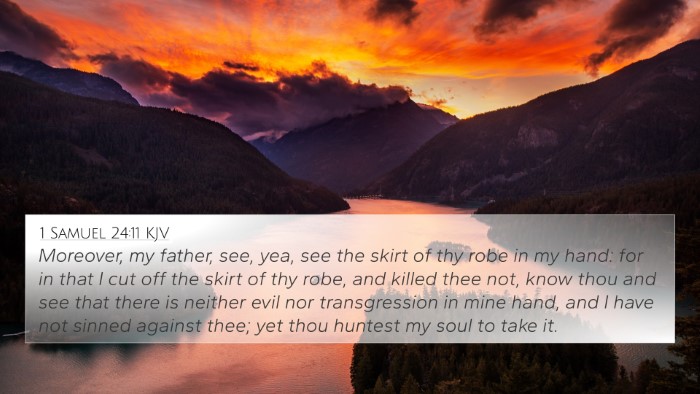Understanding Psalms 140:2
Bible Verse: Psalms 140:2
This verse reads, "Which imagine mischiefs in their heart; continually are they gathered together for war." In this profound passage, the psalmist brings to light the innate human tendency to harbor evil intentions and the collective nature of their schemes.
Summary of Meaning
Psalms 140:2 speaks about individuals who not only think about mischief but actively conspire with others, as noted by Matthew Henry and Albert Barnes. These evil intentions are not isolated incidents; rather, they are rooted in the heart and persistently manifest through actions.
Insights from Commentaries
- Matthew Henry: Henry emphasizes the malice of those who plot harm. He notes that their wicked thoughts lead to a lifestyle of ongoing scheming, highlighting the danger these individuals pose not only to the psalmist but to society as a whole.
- Albert Barnes: Barnes elaborates on the idea of "imagine mischiefs," explaining that this refers to a deliberate and calculated approach to wrongdoing. He cautions that such thinking can lead to destructive actions that affect both perpetrator and victim.
- Adam Clarke: Clarke focuses on the communal aspect of evil intentions, suggesting that the phrase "gathered together for war" signifies a unity among those who commit wrongdoing. This collective mindset can create significant upheaval and conflict.
Connections and Cross-References
To deepen understanding and see the thematic Bible verse connections, it's insightful to examine cross-references that resonate with Psalms 140:2:
- Proverbs 4:23: "Keep your heart with all diligence; for out of it are the issues of life." This verse relates as it underscores the significance of guarding one's heart against evil intentions.
- Isaiah 59:4: "None calleth for justice, nor any pleadeth for truth: they trust in vanity, and speak lies." Here, the absence of justice and truth mirrors the deceitful nature described in Psalms 140:2.
- James 4:1: "From whence come wars and fightings among you? come they not hence, even of your lusts that war in your members?" This verse depicts the source of conflict, aligning with the themes of mischief and war in the psalm.
- Jeremiah 17:9: "The heart is deceitful above all things, and desperately wicked: who can know it?" This amplifies the point that evil starts in the heart, echoing the sentiments of Psalms 140:2.
- 2 Corinthians 10:3-5: "For though we walk in the flesh, we do not war after the flesh..." Paul comments on spiritual warfare, which aligns with the notion of warfare in our hearts and minds.
- Micha 2:1: "Woe to them that devise iniquity, and work evil upon their beds!" This reflects the idea of planning evil which resonates strongly with the verse in Psalms.
- Romans 3:10-12: "As it is written, There is none righteous, no, not one: There is none that understandeth, there is none that seeketh after God." The universal tendency for evil reflects the persistent plans of mischief described in Psalms 140:2.
Thematic Connections
This verse invites us to explore the broader theme of the heart's wicked intentions and the communal aspect of wrongdoing. These themes resonate across both the Old and New Testaments, providing insights into:
- How evil intentions can lead to societal conflicts.
- The importance of vigilance in guarding against treachery.
- The consequences of collective malice on individuals and communities.
Application in Bible Study
When engaging in Bible cross-reference guide methods, understanding Psalms 140:2 provides a springboard for deeper theological reflection. Consider these aspects:
- Applying Cross-Reference Techniques: Utilize tools for Bible cross-referencing to identify related scriptures that explore similar themes.
- Comparative Bible verse analysis: Examine how different authors address similar motifs and their implications for personal and communal faith.
Conclusion
In summary, Psalms 140:2 serves as a powerful reminder of the complexities of human nature and the frailty of the heart. As believers, it challenges us to seek purity of heart and to recognize the potential ripple effects of harboring and acting on evil intentions.

